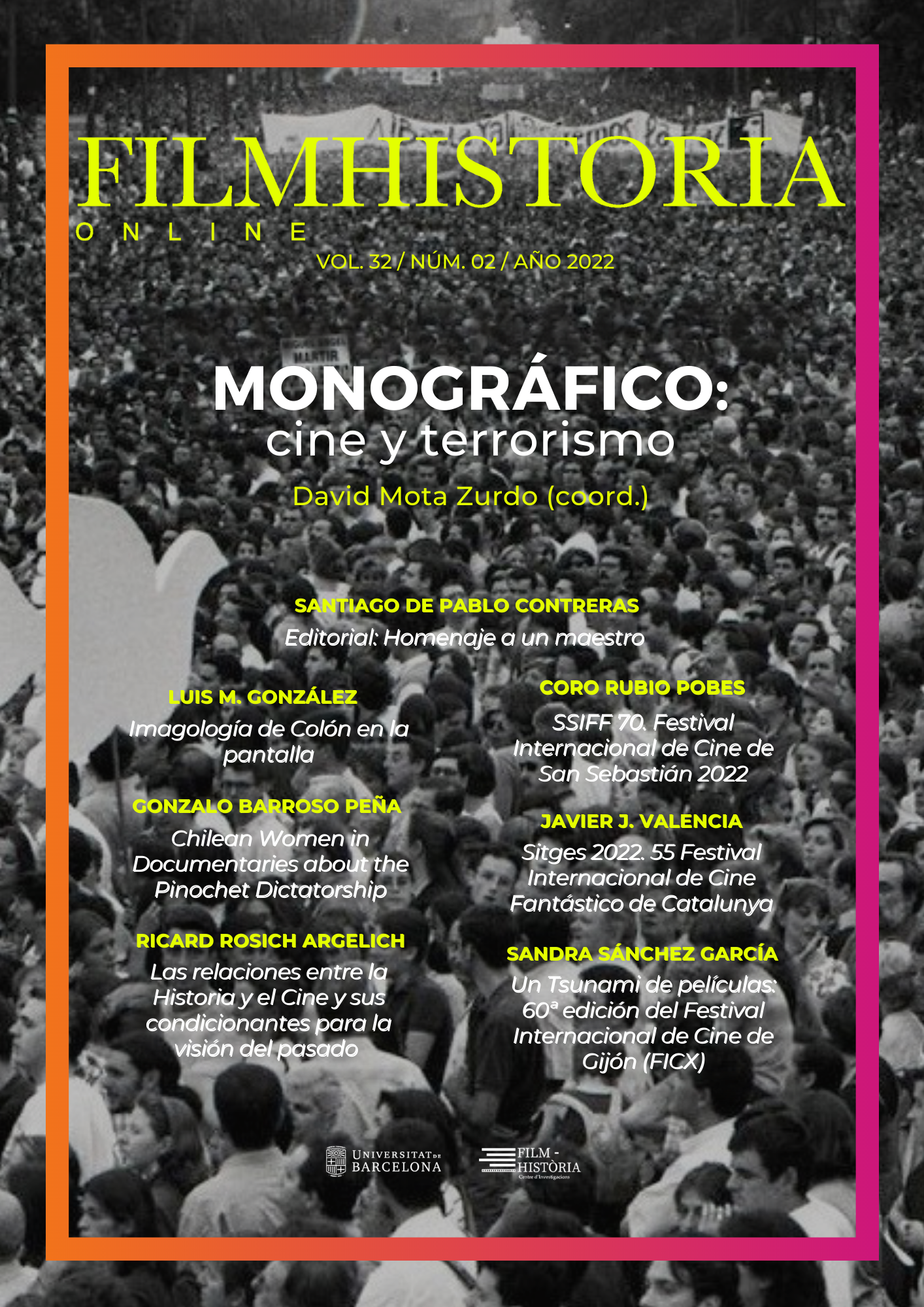UNA MEMORIA AUDIOVISUAL. LA HISTORIA DE ETA Y SUS VÍCTIMAS ANTE LA PANTALLA (2018-2022)
Keywords:
ETA, televisión, cine, ficción, documental.Abstract
After the dissolution of ETA in 2018, there has been a growth in audiovisual productions that have influenced its history from different perspectives with significant results in both quantitative and qualitative terms. In the last five years there has been a real boom in the treatment of terrorism, which has been reflected in documentary and fiction productions. This has been due to multiple factors, among others, the success of literary works such as Patria, which have been taken to the audiovisual world, or the attitude of civil society, which has demanded products of this type to learn about the traumatic past of political violence. Consequently, there has been a notable increase in the number of films and documentary and fiction series: a circumstance that invites us to carry out an analysis of the treatment of the history of ETA in the audiovisual world and check whether this perspective is restorative with the victims. For this reason, in this work the productions of this type between 2018 and 2022 are examined from a semiological and critical hermeneutics, checking if myths and biased readings persist or if there have been interpretative advances placing the victims in the axis of the story.







